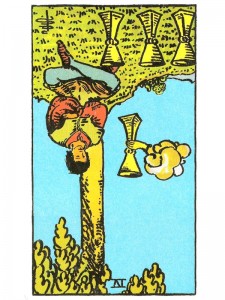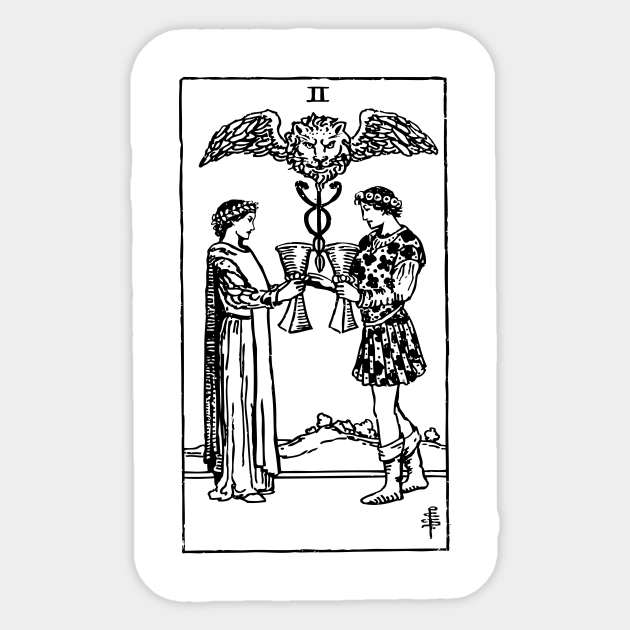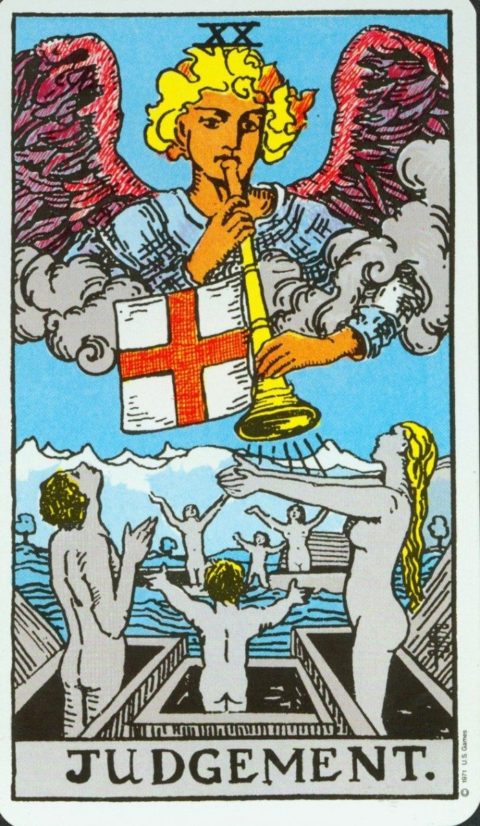
Jessica Dore, a Philadelphia-based tarot readers and yoga teacher, is the author. She is a tarot reader and a teacher of ashtanga yoga. Her Twitter account is a huge success. She often includes a picture with a card in her tweets.
Jessica Dore can be a tarot card reader
Jessica Dore is an expert Tarot reader. She combines traditional philosophy with modern psychological modalities. Her book Tarot for Change explores psychology and the human condition. She also discusses the next steps in her practice. You can learn more about Dore and her work at her website and on Twitter.
She believes that tarot aids people to imagine a better society and can free them of the constraints of rationalism, doubt and doubt. Her worldview focuses on a world in which there is no "black and white" and where seemingly opposite things are actually one. This ideal is very similar to the Indigenous worldviews that have strong connections to tarot.

She combines therapy and tarot readings
Jessica Dore is a 34-year-old social worker and writer who combines tarot interpretations with her writing. She says tarot is a great tool for self-reflection and helps people identify and release stuck emotions. In addition, she adds a layer of therapy to her readings.
Before she became a therapist, Dore worked as a publicist at a publishing company focusing on health, psychology, and spirituality. Dore was introduced to tarot cards by a coworker and began to study them. Rachel Pollack gave her a book that taught tarot and she journaled about the experiences. She conducts tarot card sessions one-on-one over video.
She teaches ashtanga yoga
Jessica Dore began her practice of yoga in 2006, and began teaching it in 2010. While she began her practice of yoga as a means to improve her physical health, she soon discovered the wisdom that was inherent in the practice. She became fascinated by this ancient practice and wanted to know more. She went to India twice for meditation classes with Professor Om Bhaweja. After that, she immersed herself fully in asana.
Dore, who is also licensed as a social worker and a reader of tarot, uses tarot to help people with their minds and spirits. On her newsletter as well as her social media pages she discusses the psychological and magical meaning of tarot card cards. She hopes these insights will assist people in navigating through difficult times in their lives.

She practices the tarot
Jessica Dore uses tarot to communicate her thoughts. Dore also uses the cards for self-care. She talks about her daily life, including bread baking and tarot. It's a way to inspire your mind and to explore your feelings.
The tarot can be divided into major and minor arcana. It consists of cards that are related to both individual and interrelated items. The major cards, on the other hand, ask questions of a spiritual nature. Tarot can help you tap into your creativity and overcome your limitations.
FAQ
What does it cost to have a hobby?
Hobby costs nothing except time. If you're serious about your hobby, it can take you years to get what you want.
But there is one thing that can help you. It's called "passion". If you have passion about something, it will make it easier for you to work hard.
You may become addicted to the activity once you have put in enough hours. And this is where the real fun begins! Because you're doing something you like and it keeps getting better. This will mean that you will have likely made significant improvements by the end.
It doesn't matter how long it takes. Don't be afraid to try. You might just surprise yourself!
What are some hobbies that seniors might enjoy?
Senior citizens should be able to enjoy activities that they are passionate about. Active seniors should take up sports and other physical activities.
They might want to join clubs where they can meet people who share similar interests. This way, they'll feel less lonely as they age.
Seniors need to keep up with current trends. For example, they could follow fashion, art, music, literature, politics, etc.
What are your top hobbies?
You can find the best hobbies that you love doing for yourself. If you love what you do then you'll find it much easier to keep going. You'll also have an excuse when you're not feeling well or tired!
Our hobbies include painting, crafts, photography and cooking.
You might also consider volunteering at a local charity shop or animal shelter, children’s hospital, hospice, elderly home, school, community centre, church, and other places.
Perhaps you want something more adventurous. Take up skydiving or rock climbing, parasailing, parasailing and paragliding.
If you want to go further afield, there are plenty of unique ways to spend time in nature. These include caving, cliff diving, cave tubing, abseiling, sea kayaking, rafting, canoeing, climbing, trekking, bushwalking, mountaineering, backpacking, trail running, orienteering, off-road driving, quad biking, motorcycling, motorcycle riding, dirt bike riding, jet boating, hang gliding, hang gliding, parachuting, hang gliding, heli-skiing, ice skating, snowmobiling, snowshoeing, snowshoeing, cross country skiing, downhill skiing, telemark skiing, ski touring, sled dog racing, snowboarding, snowkiting, snowmobiling, spelunking, snowshoe hiking, snowshoeing and many more.
How do I start my new hobby?
To start a new hobby, you must first decide what type of activity you would like to do.
Passion is essential once you have selected your subject.
It is essential to understand the reasons you want to start a hobby. It will give you some direction and purpose.
Once you've chosen the hobby you would like to pursue you can start planning.
Consider the equipment that you will need.
You might need to consider whether you should attend classes or seminars.
Ensure that you have enough space for your hobby.
A club or group might be something you consider. These groups are often supportive and offer advice.
Consider how much money you would have to spend on your hobby.
What are the competitive hobbies?
There are many competitive sports, including running, swimming and cycling, as well as golfing, tennis and other activities.
These games are often played by people who enjoy exercise but also offer the opportunity to interact with others.
If your hobby is physical activity, chances are that others share it.
This may mean joining a club or group where you meet regularly to play sports together.
Participating in group games, which involve playing alongside others, is another option.
These include soccer (soccer), rugby, netball and hockey.
There are many types of competition.
Some competitions exist solely for recreational purposes.
Others are designed to test the skill of competitors.
Others are also designed to reward exceptional performance.
In these cases, winners receive prizes.
Other competitions are meant to test competitors' strength and stamina.
These are known endurance events.
For example, marathon races, triathlons, Ironman Triathlon, etc.
Before participating in these events, athletes often train hard.
To prepare their bodies and minds, they will have to adhere to a strict training plan.
They might also need to be away from their homes during preparation.
It is important that you remember that not every athlete can compete in every type or event.
What are collection hobby?
Books, movies music, comics and video games are some of the most popular collections.
Also, you can collect anything: stamps, coin to cars, dolls to action figure to model kit to figurines to art materials to tools to cook utensils and jewelry to watches to jewellery to appliances to clothes to furniture or antiques to...
You get it?
What are your educational hobbies?
An educational hobby involves a sport or other activity where you can learn something from doing it. It could be anything from playing sports to learning how to play an instrument.
You should have fun with it. You don't necessarily have to do this all the time. But if it becomes boring, then think about what you could be doing.
These activities can also be costly so make sure you don't spend too much.
Statistics
- Much of this decline reflects the fact that teens are less likely to work today than in the past; among employed teens, the amount of time spent working is not much different now than it was around 2005. (pewresearch.org)
- The Role of the Mind in Sex, Dating, and Love: Men in the “humor” condition received phone numbers from 42.9% of the female participants and were refused 57.1% of the time. (time.com)
- I am 100% biologically a woman (discover.hubpages.com)
- Almost 80% of people claim to have no hobby. (hobbylark.com)
- A new survey by Pew Research Center of teens ages 13 to 17 finds that 36% of girls feel tense or nervous about their day every day; 23% of boys say the same. (pewresearch.org)
External Links
How To
How to Get Started in Baking
Baking is the art of making food out of flour, eggs sugar, butter and other ingredients. Baking involves the use of flour, fats sugars, leavening agent, salt, and water as the main ingredients. We will be discussing how to make bread in this article. Common ingredients include wheat flour, yeast powder, egg whites and butter. We also use honey, salt, honey and olive oil.
These ingredients are necessary for baking bread. First, add the dry ingredients to your bowl (flour. yeast. salt). Next, add the wet ingredients (milk powder and egg white). Mix them together. Mix in the honey, then knead until the dough is smooth. Let the dough rise for around 30 minutes. After rising the dough should be firm and elastic. You can roll out the dough and place it on a baking sheet. Bake at 180°C for fifteen minutes.